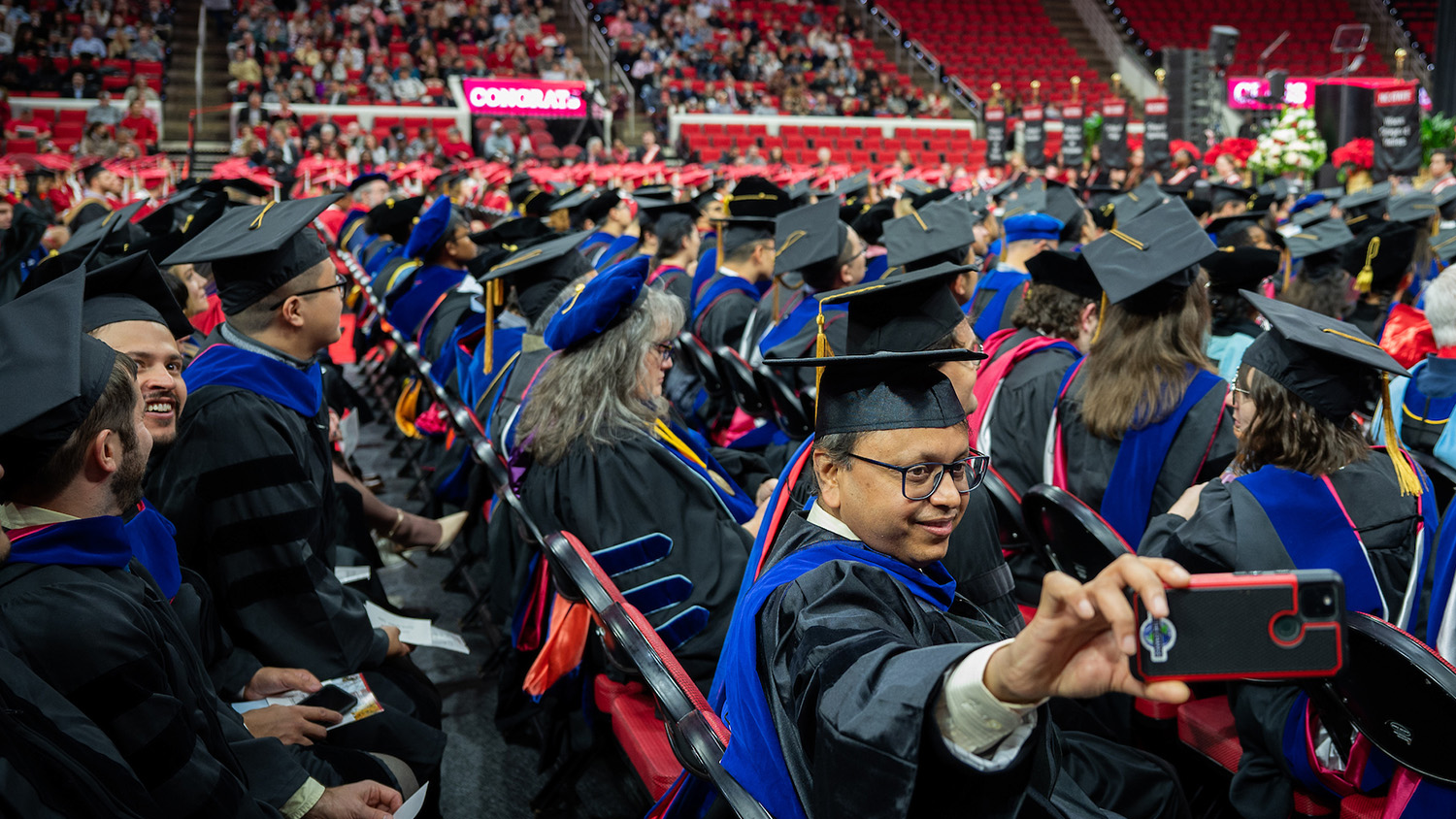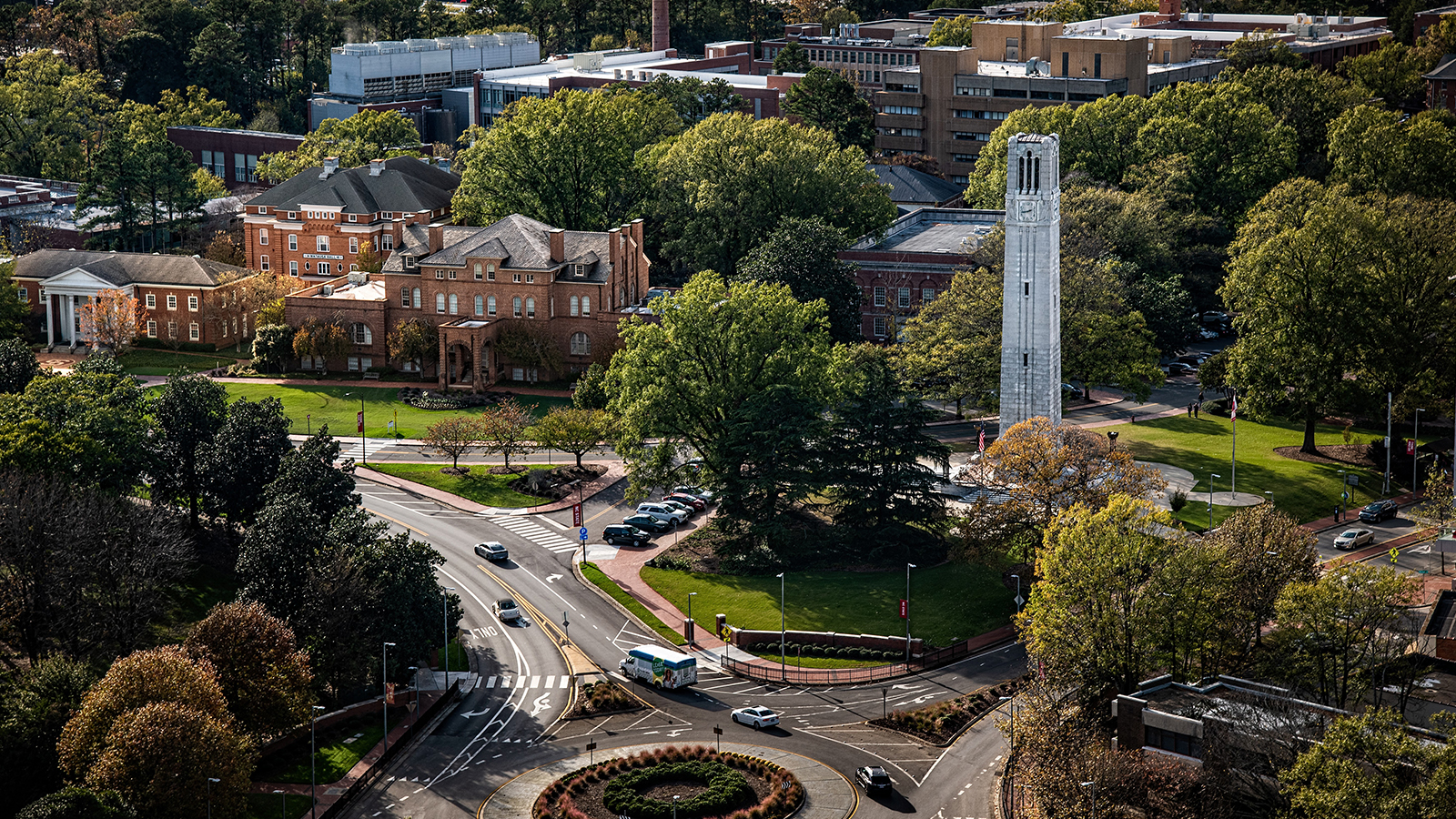By Jenna Hall
In the world of agricultural research, innovation thrives when scientists connect across disciplines and industries. That’s the driving force behind the Foundation for Food & Agriculture Research (FFAR) Fellows National Leadership Program, a unique initiative preparing Ph.D. students from across the country to lead a broad range of collaborative teams that foster advancements in agriculture.
Housed within NC State University’s College of Agriculture and Life Sciences (CALS), the program was launched in 2016 when a consortium of universities and industry leaders recognized a gap between scientific expertise and interdisciplinary leadership and communication skills. Now entering its ninth year, FFAR Fellows represent 45 universities in 35 states and three Canadian provinces.
“It’s easy for Ph.D. students to stay head-down in their research,” says Rebecca Dunning, FFAR Fellows program director and facilitator for the CALS Graduate Peer Mentor Program. “We wanted to see students build the soft skills necessary to work beyond the lab — across industries and with marketing and policy teams.”
Preparing a New Generation of Agricultural Innovators
With an acceptance rate of just 28%, the FFAR Fellows program is highly competitive. The students who are selected join a three-year cohort where they engage in 100+ hours of training to develop the leadership and facilitation skills that will complement their research expertise.

This approach ensures that groundbreaking agricultural research gets a life beyond the lab and that alumni enter the workforce prepared to communicate effectively with lay people, lead teams and present ideas in interdisciplinary settings.
“A ‘win’ is the diversity of career paths for alumni,” Dunning says. Of the 203 fellows who have participated so far, 45% now work in industry, 37% in academia and 18% in government, nonprofits or commodity organizations — a wide spectrum of fields reflecting the program’s success in broadening career pathways for agricultural scientists.
FFAR Fellows Shaping the Future
In the seven years since the program welcomed its first cohort, NC State has been home to more than 30 FFAR Fellows, each coming from different perspectives and disciplines, but all wanting to make a difference in their fields.

Karlinton Flores | 2019 Cohort
Part of the second cohort of FFAR Fellows, Karlinton Flores, who earned a doctoral degree in animal and poultry science, completed the fellowship in 2022. His research focused on how machine learning could optimize poultry production systems, from feed formulation to processing. Since finishing his fellowship, Flores has moved into technical roles with commercial partners, currently serving as the technical sales manager at animal nutrition company Nutreco. He credits the FFAR Fellows Program with preparing him to take on leadership roles in the animal industry.
“I am in great debt to the FFAR fellowship as it has been life-changing in my professional career,” Flores says. “I went from being a regular scientist to being a scientist with great impact by applying the soft skills I learned in this program. These skills enabled me to secure a job and now consistently excel in developing novel products for animal protein production.”

Laissa Cavallini dos Santos | 2024 Cohort
Inspired by witnessing the impacts of pests and disease on her family farm in Brazil, Laissa Cavallini dos Santos is a Ph.D. student in entomology and plant pathology at NC State. Her research focuses on thrips and pest management in cotton, including applied work that evaluates seed treatments and other tools to reduce pest damage and improve grower outcomes. As a FFAR Fellow, she’s translating her entomological research into practical recommendations and building connections with colleagues across the food and agricultural sciences.
“The FFAR Fellowship has helped me recognize my strengths as a leader and communicator,” Cavallini dos Santos says. “The fellowship has taught me how to be a better colleague in my lab and how to effectively give and receive feedback. It has also offered some perspective on my future career path.”

Jackson Alsdorf | 2025 Cohort
Jackson Alsdorf is a graduate student in crop and soil sciences with a background in weed science. His research focuses on helping North Carolina growers manage weeds and reduce acquired herbicide resistance. Through the FFAR Fellows Program, he is sharpening his communication skills and discovering new approaches to problem-solving.
“FFAR has been such a unique experience,” Jackson Alsdorf says. “When I applied, I hoped to connect with peers who share a passion for advancing agricultural research. The fellowship has far exceeded those expectations, offering opportunities to strengthen my skills in time management, conflict resolution and professional communication, helping me grow as a student and a scientist.”

Alexis Alsdorf | 2025 Cohort
Originally from Richmond, Indiana, Alexis Alsdorf is a graduate student in entomology and plant pathology, investigating how different corn planting strategies impact the management of corn earworms. The goal of her research is to inform U.S. Environmental Protection Agency guidelines that support the sustainable production of cash crops and reduce reliance on chemical insecticides. She was drawn to the FFAR Fellows Program because of her desire to turn technical research into real-world impacts.
“This program has expanded my network and exposed me to disciplines beyond my own, from food and soil science to social science. These interactions have sparked new research ideas and opened doors for collaboration I wouldn’t have found elsewhere,” she says. “FFAR has also helped me build professional and interpersonal skills, shaping how I approach research and influencing my career for years to come.”
Looking Ahead
As the FFAR Fellowship prepares to recruit its ninth cohort, the program continues to evolve.
“One shift has been toward preparing fellows to not only be good team members and leaders, but to also be prepared to facilitate collaborations,” Dunning says. “This means learning how to build a meeting agenda, to facilitate a meeting, to manage conflict and to ensure the best ideas are shared and heard. Learning these skills pays dividends for them now — as graduate students who can step up to lead an interdisciplinary collaborative project — and in their future careers.”
The truest testament to the program’s success are the students and alumni who have brought their research to life through creativity, collaboration and leadership. For Dunning, seeing those transformations unfold is the most rewarding part of the job.
“Supporting the fellows to find their purpose and realize their personal values and vision is incredibly rewarding,” she says.
This post was originally published in College of Agriculture and Life Sciences News.
- Categories:



